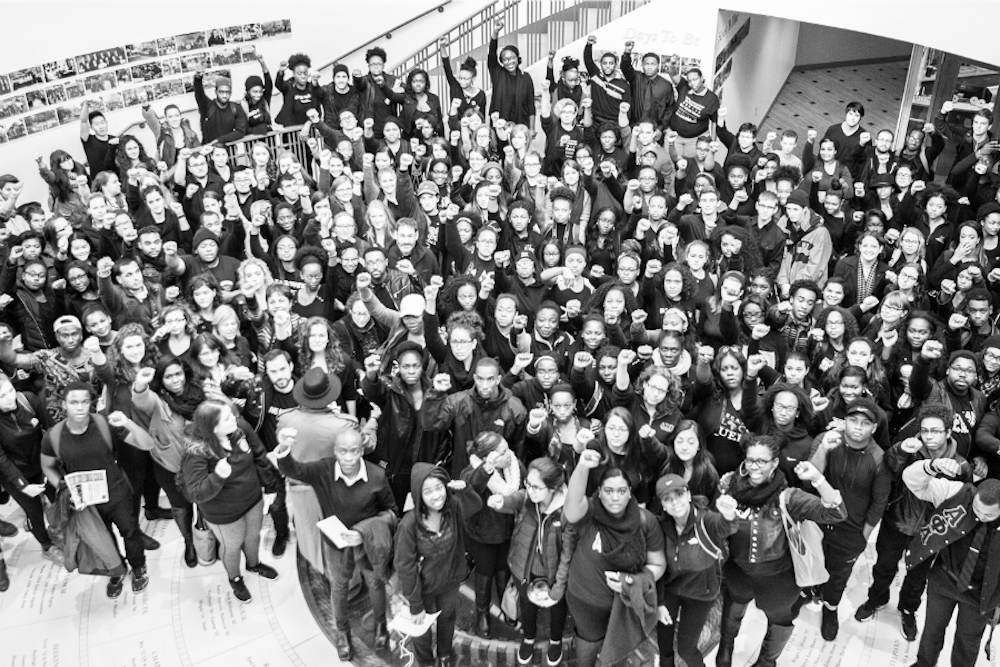The following piece, written by the editorial editors, reflects the majority opinion of the editorial board.
Heavily publicized protests over racial tensions at the University of Missouri that began with a hunger strike and culminated in a boycott by the Missouri football team ended in a coup d'etat of the university's president Timothy Wolfe this Monday.
While this is certainly a triumph, the fight is not over. The students at Missouri are tasked with reforming a culture that is not going to die easily. Racial tensions like the ones that sparked the actions at Missouri are prevalent on college campuses all over the country, and Miami is no exception.
The ousting of Wolfe is an important symbol of the fact that students are having conversations. It's not the fact that the president resigned. It's the fact that anyone in that position responded to these conversations.
Wolfe was a complacent president, completely shut off from minority students. And because of this, he was complicit. By refusing to take the demands of minority students seriously, he was suppressing their culture on Missouri's campus.
Yet, Wolfe's resignation is not going to solve the problem. Changes in campus culture - specifically one that has been propped up by a long history of privileged, white, southern students - will come slowly and take years. But that isn't to say his resignation does not matter.
Putting a new administration in place of one that has a long culture of ignoring minority views could have a trickle down effect. An administration where minorities are represented could make the privileged, white students realize that their worldview is not the dominant one - that there are others.
But Wolfe made sure those worldviews didn't come to fruition. His complacency gave the majority a venue.
Students at the University of Missouri will probably get a president who cares about the struggles that minority students are going through. They will probably get a president who is more tolerant of diversity and less tolerant of racism.
On social media platforms like Yik Yak and Facebook, students and alumni voiced their support for Wolfe, saying that it was unfair he was forced to resign.
What's funny is a lot of these comments are coming from white, able-bodied men with a decent amount of wealth - people who have never been marginalized in any way. People who truly can never understand what it is like to live their days constantly hounded, if not by outright racism, then by cultural microaggressions.
Probably not a single person on that campus thought,"Oh, this is me they are protesting, I'm the racist." People rarely admit - or even acknowledge to themselves - that they are the problem.
What's sad is what it took these students to reach their goal. Wolfe's resignation came at the cost of over one million dollars. While student protests, a list of demands and even a hunger strike could not force change, the boycott of the university football team - which would result in loss of revenue - did. Combined with negative publicity swirling around the school, alumni up in arms and the threat of being fired, the potential monetary loss became the straw that broke the camel's back.
While it is not ideal that money holds more power than students' wishes or well-being, it does not discredit the fact that something finally spurred a positive change.
And though it may be just the first step in a long list of necessary improvements, it brings us one step closer than we were before.
It is hard to change the mindset of one individual, let alone of an entire student body. Racial intolerance is a longstanding problem, and it will take a long time to resolve. But for now, in Missouri, this is a start.

